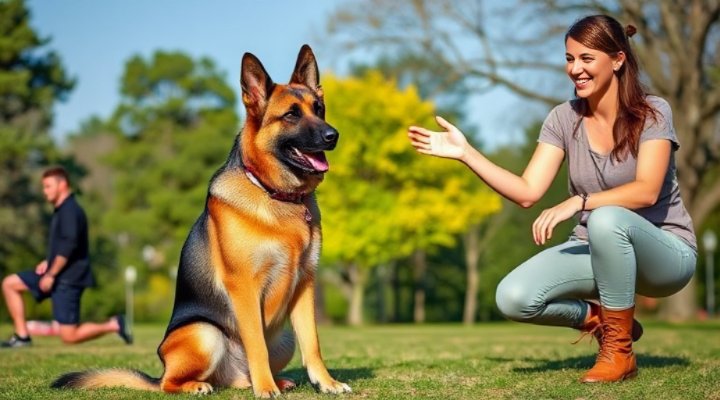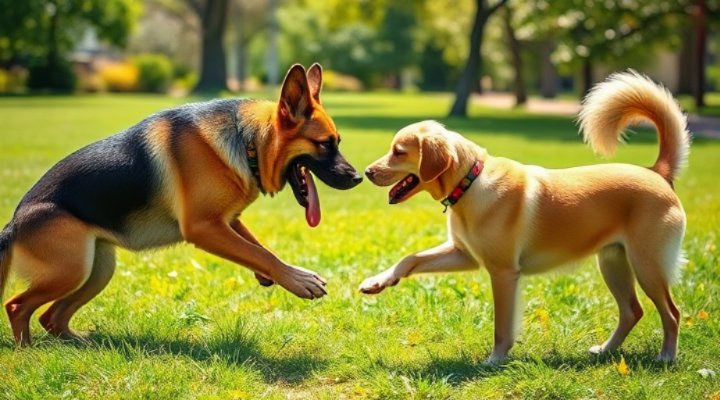German Shepherd dog training is an exciting and fulfilling experience, especially given the breed’s remarkable intelligence and eagerness to learn. Whether you’re starting with a playful puppy or working with an adult dog, the right approach can make all the difference. In this guide, we’ll explore proven methods and tips to help you train your German Shepherd effectively.

Getting Started with German Shepherd Puppy Training
Training a German Shepherd puppy requires patience and consistency. Puppies are like sponges, absorbing everything around them, so it’s crucial to start early. Begin with basic commands like ‘sit,’ ‘stay,’ and ‘come.’ Use positive reinforcement, such as treats and praise, to encourage good behavior. For more detailed tips, check out our German Shepherd Puppy Training Tips.
Socialization is equally important. Expose your puppy to different environments, people, and other dogs to build confidence. This will help prevent behavioral issues later on. Meanwhile, crate training can provide a safe space for your puppy and aid in house training.

Advanced Training for Adult German Shepherds
Adult German Shepherds are highly trainable and excel in advanced obedience and specialized tasks. If you’re working on leash manners, our guide on Dog Pulling on Leash offers practical solutions. Additionally, German Shepherds thrive in activities like agility, search and rescue, and even therapy work. For those interested in therapy dog training, the American Kennel Club (AKC) provides excellent resources.
Consistency is key. Use clear commands and reward-based training to reinforce desired behaviors. Avoid harsh methods, as they can damage the trust between you and your dog. Instead, focus on building a strong bond through positive interactions.

Socialization and Mental Stimulation
German Shepherds are social animals that benefit greatly from interaction with other dogs and people. Regular playdates and visits to dog parks can enhance their social skills. For more on this, explore our article on Dog Socialization Classes Near Me.
Mental stimulation is just as important as physical exercise. Puzzle toys, scent games, and advanced training sessions can keep your German Shepherd engaged and prevent boredom-related behaviors. A well-stimulated dog is a happy dog!

Common Challenges and Solutions
Like all breeds, German Shepherds can face specific challenges, such as separation anxiety or excessive barking. Address these issues early with positive reinforcement and structured routines. For aggressive behaviors, consider consulting a professional, as outlined in our Dog Trainer for Aggressive Dogs guide.
Remember, every dog is unique. What works for one German Shepherd might not work for another. Stay patient, adaptable, and always prioritize your dog’s well-being.

Conclusion
German Shepherd dog training is a journey filled with learning and bonding. From puppyhood to adulthood, these intelligent and versatile dogs respond best to positive, consistent training methods. By incorporating socialization, mental stimulation, and advanced obedience, you’ll raise a well-rounded and confident companion. For further reading, the American Veterinary Medical Association (AVMA) offers valuable insights into dog behavior and training.
Related Keywords: German Shepherd training, German Shepherd puppy training, German Shepherd obedience, German Shepherd training tips, German Shepherd behavior.
